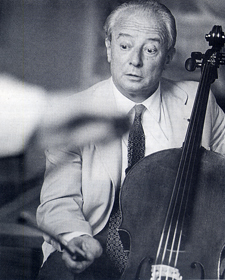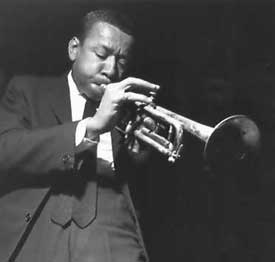Tonight’s selections were:
Billy Bragg & Wilco: Mermaid Ave. 2
Lee Morgan: Leeway (the RVG edition)
Monteverdi: L’Orfeo (John Eliot Gardiner conducting on Archiv)
Beethoven: complete piano trios from the DG Complete Beethoven Edition
I can’t possibly talk about all of these at the moment, and I have only listened so far to some of the Beethoven and the Lee Morgan. So I’ll stick to those.
‘Leeway’, and the series from Blue Note that it is released under the ‘Rudy Van Gelder edition’ sounds like what Blue Note jazz in the late 50s and 60s sounded like, mostly because so much was recorded in Rudy Van Gelder’s living room (and later his custom studio). The number of GREAT jazz albums recorded by RVG is astounding, and when Blue Note started re-releasing these recordings in the 2000s (remastered by RVG himself) I grabbed as many as I could every time Blue Note discs were on sale. They sound great. And even better is the exposure you get to some great artists that may seem peripheral to the jazz greats. But you really do get a sense of how all of these guys worked and played together on each other’s albums. Hearing a ‘Lee Morgan’ album isn’t just a Lee Morgan album. Art Blakey, Paul Chambers, Jackie McLean and Bobby Timmons are in on the session as well. All of these guys had albums under their own names, most notably Art Blakey. And I love Lee Morgan – but how were the decisions made about who would get the album credit? Why isn’t this an Art Blakey album? When it comes down to it, this one really does feature Lee Morgan… hands down. But then you listen to “Lazy Bird” on John Coltrane’s album “Blue Train”, and how is THAT not something that belongs on a Lee Morgan album???
Nice stretched out performances (the shortest track is still over 8 minutes) that are just cool. And what the RVG recordings show you is how important a recording engineer can be. The sound on RVG recordings really have a signature. There is a story I remember hearing about the first time Herbie Hancock recorded at the studio. Apparently he came in and started to move the piano a bit away from a wall, then started to move a microphone boom stand, and Rudy freaks out. The piano and microphones HAD to be in those spots for it to sound right. The way the sound bounced off the wall and the distance of the mic from the piano had been tuned over years of trial and error…
The recording engineer (and producers) are often the most overlooked musicians. Without them, sound wouldn’t be captured and made available for us to listen to. And they need to learn how to play their instruments in the same way a saxophonist does. It takes years of practice to get your sound, and after a little practice on a listeners part you can recognize RVG recordings (on many labels) just like you would recognize Lee Morgan’s trumpet sound.
The Beethoven discs are the piano trio recordings by Wilhelm Kempff, Pierre Fournier and Henryk Szeryng made in the late 60s. Kempff and Fournier are two of my favorite classical musicians of all time. I also have live recordings that the two of them did of the Beethoven Cello Sonatas. What is so fun about both the piano trio recordings and the sonatas is the sense of enjoyment these performers bring to pieces that they had probably known for 3 to 4 decades at this point in their lives. This is music that is in their muscles. A part of their physicality. But with the wisdom comes age. The performances are not ‘perfect’… there are missed notes here and there, and sometimes you can feel the group pull back a little to regroup. But everything is so musical. There actually isn’t a single note in these recordings. There is such a continuity that it is hard to believe that what we hear these three men playing is somehow represented by something as finite as dots and lines on a page. Beethoven is so lucky to have had people in this world that know and play his music with such connection. Well – Beethoven is lucky, but we are just as lucky! I could go on further, but I need to save something for the many returns to these artists I will be making in the future.



